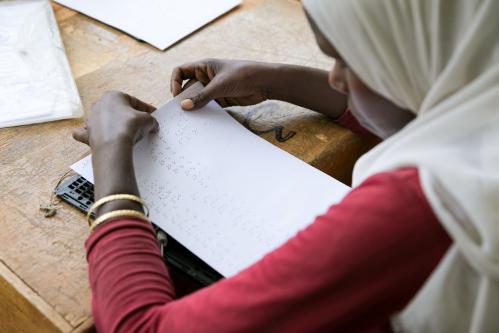SUMMARY
In the United States, public investment in children typically does not begin until they are age five or six and enter a public school system. Until that time, we regard the care of young children as the almost exclusive domain of parents, relying on them to provide a good environment – one that will promote healthy physical, intellectual, psychological, and social development. Good care early in life helps children to grow up acquiring the skills to become tomorrow’s adult workers, caregivers, taxpayers, and citizens.
Yet today, many parents, early in their own careers and family life, are stretched thin, in both time and money, trying to care for their young children. Whether a single mother working the night-shift at a fast-food restaurant, or a busy executive dashing home before the child care center closes, parents across the socioeconomic spectrum struggle to balance both their children’s developmental needs and the demands of their employers.
For families with children under age six, time is especially scarce if both parents work or if there is a working single-parent. Yet, two-thirds of young families fit one of these models. Money is scarce for the 40 percent of these families that have incomes below 200 percent of the poverty line – less than $34,000 a year for a family of three. And, there is a double squeeze on the 22 percent of families where parents work outside the home and are low-paid.
Despite the challenges facing young families, the federal government has provided little direct support. At the state government level, however, there has been a significant change. A majority of states have now adopted public pre-kindergarten programs and other forms of early childhood intervention. Attitudes toward public investment in the pivotal early childhood years are shifting, and the time is ripe for a new president to provide federal leadership in developing policies to support young children and their families as a key part of his domestic policy agenda.
The president should work with Congress to expand early childhood programs that have proved cost-effective and to promote tax and workplace policies to reduce burdens on young families. More specifically, he should:
- Provide federal funding for high-quality, center-based preschool programs for three- and four-year-old children, that are open to any family that wishes to enroll a child and fully subsidized for the poorest families;
- Send nurse home visitors into the homes of all first-time pregnant women in economically impoverished families to promote sound prenatal care and the healthy development of infants and toddlers through age two; and
- Support young families at all income levels through a federal-state initiative to provide up to 12 weeks of paid parental leave after birth or adoption.
View the entire volume: “Big Ideas for Children: Investing in Our Nation’s Future” »
The Brookings Institution is committed to quality, independence, and impact.
We are supported by a diverse array of funders. In line with our values and policies, each Brookings publication represents the sole views of its author(s).



